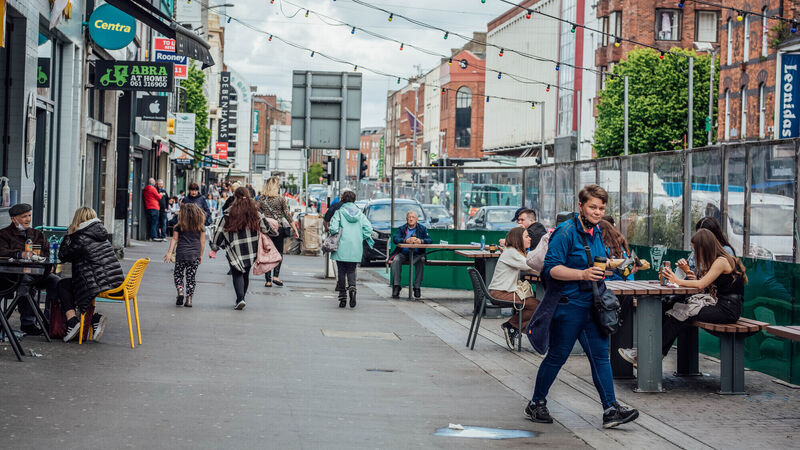State 'saturating' Limerick city centre with short-term asylum-seeker accommodation

Chamber chief executive Michelle Gallagher: 'You cannot regenerate a city centre by saturating it with temporary profit-driven accommodation while sidelining permanent housing, students, families and commercial activity.' File picture: Brian Arthur
The State’s system for delivering asylum-seeker accommodation is pushing Limerick city centre in the wrong direction, its business leaders have warned.
Limerick Chamber issued the stark warning in a letter to housing minister James Browne and justice minister Jim O’Callaghan and called for immediate reforms of the system which uses planning exemptions to secure buildings for International Protection Accommodation Service (Ipas) accommodation.
Chamber chief executive Michelle Gallagher said the use of planning exemptions incentivises short-term institutional use of prime city centre buildings over long-term housing, education, or commercial projects.
The high rates being paid under Ipas contracts is inflating city centre property values, making buildings financially viable only as institutional temporary accommodation, and is crowding out residential and commercial developers and deterring long-term investment, she said.
“Limerick’s city centre is being pushed in the wrong direction,” she said.
Her comments come just days after the Irish Examiner reported on how the Department of Justice has pulled the plug on controversial plans to co-locate Ipas accommodation in a building with existing residential apartments in Cork city centre.
The department was considering using part of the building on South Terrace, which has private apartments on the upper floors, to house up to 50 asylum seekers on two lower floors of former office space.
The developers, who availed of a planning exemption for the work, were well advanced on converting the two floors to accommodation.
But a day after queries from this newspaper about the contentious co-location proposal, the department said it was no longer considering the property, and builders withdrew from the property.
Ms Gallagher said the use of planning exemptions for Ipas developments was circumventing local development strategies, which in Limerick included plans for compact, vibrant city growth with long-term housing and commercial investment, and was creating a two-tier planning system.
She said some developers were facing rigorous planning conditions, costs, and community obligations, which Ipas accommodation providers could sidestep entirely, facing lower risk and receiving higher return.
Limerick’s city centre already hosts a high concentration of social services, and clustering more Ipas centres in the same locations risks overburdening infrastructure and deepening urban inequality, the chamber said.
“This is a textbook example of short-term thinking producing long-term entrenched planning challenges,” Ms Gallagher said.
“You cannot regenerate a city centre by saturating it with temporary profit-driven accommodation while sidelining permanent housing, students, families and commercial activity.”
The chamber set out four key demands to Government including;
- Ending the planning exemptions for Ipas accommodation and subject them instead to the full planning process;
- Introducing a balanced regional and local dispersal policy to avoid over-concentration in vulnerable city areas;
- Reforming the Ipas procurement contracts:
- Introducing structured consultation with local authorities and business stakeholders on the location prior of future Ipas sites.
Finance minister Paschal Donohoe said the Government was aware of the issues and it is why the State is moving to State-provided Ipas accommodation — to reduce its reliance as fast as possible on the private sector, and to distribute the centres evenly across the country.
“There are some trends under way that give me confidence that we'll be able to do it,” he said.
“We do see the number of people who are seeking refuge is at a lower level than it was a year ago because of changes that are taking place in our own immigration system and changes that are taking place in the world.
“And we are also making gradual progress now in the acquisition of State facilities that will be able to play a larger role in the future.”
The State spent more than €401m on Ipas accommodation and on housing Ukrainian refugees in the first three months of this year.
The State is also set to buy the Citywest Hotel in Dublin for more than €148m for use as a permanent immigrant processing centre.















